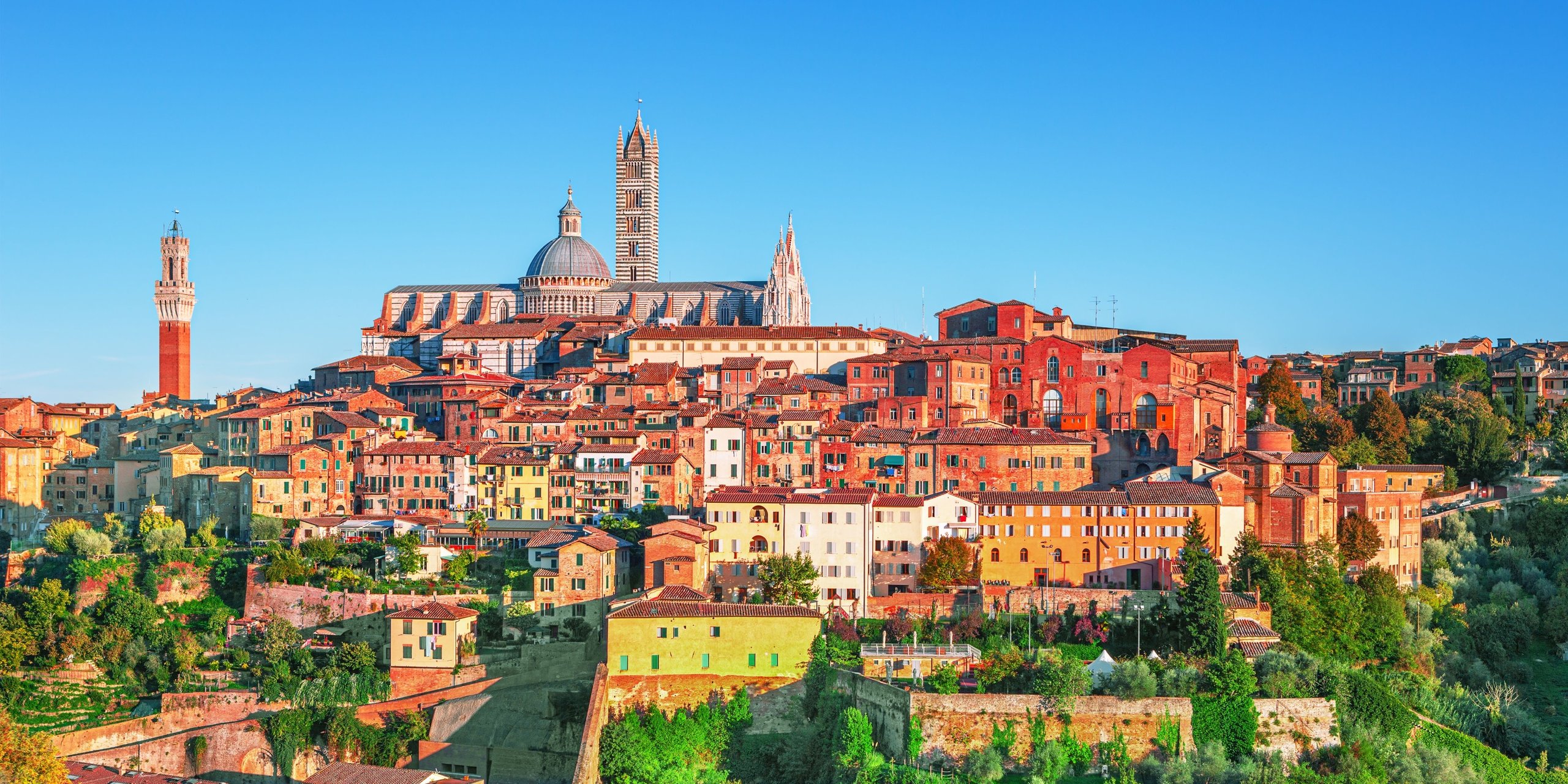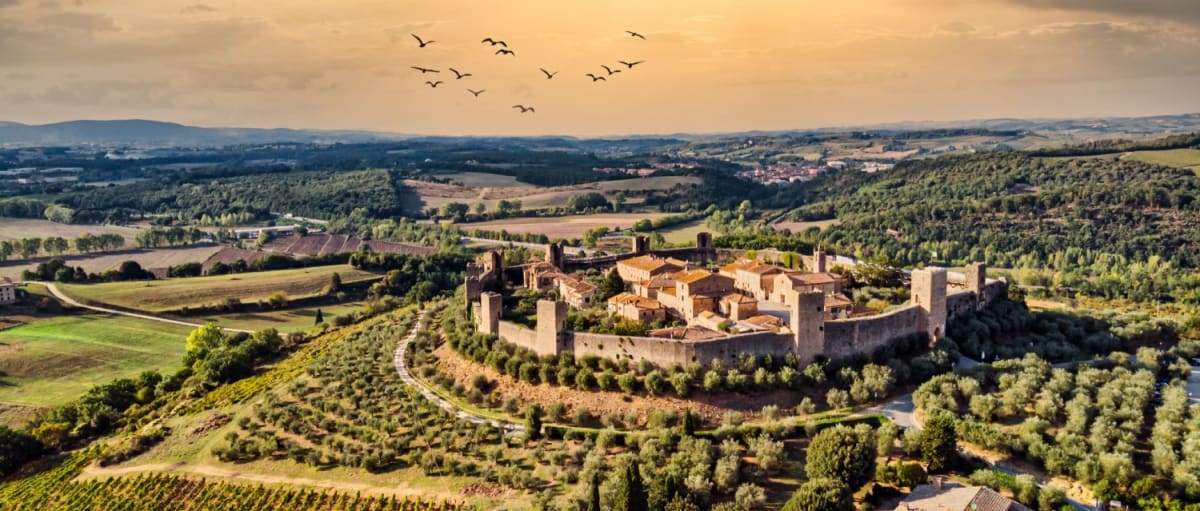The property buying process in Italy can seem daunting at first for international buyers. However, buying property in Italy essentiallly boils down to seven relatively simple steps.
Buying real estate in Italy can be an exciting venture for international buyers. To navigate this journey effectively, it’s crucial to conduct thorough research and understand the necessary steps.
While the process is generally clear-cut, there are important decisions to consider early on, such as acquiring a codice fiscale (tax code). Below is a detailed outline of the property purchasing process in Italy:
Contents
- Step one: Preparation and research
- Step two: Get your team in place
- Step three: Viewing trip
- Step four: Making an offer
- Step five: Initial contracts
- Step six: Mortgage (if applicable)
- Step seven: Final contract and completion
- Buying a resale property
- Buying a new-build property
Step one: Preparation and research
The initial stage in acquiring property in Italy involves clarifying your preferences regarding what and where you want to buy. Consider how the property will serve your needs and intended use.
Italy offers a wide variety of properties, each differing significantly in style and price based on geographic location. To refine your search, ask yourself the following questions:
- What type of property appeals to you? Options might include villas, apartments, farmhouses or trulli.
- Size criteria: How many bedrooms and bathrooms do you need?
- Property age: Would you prefer a renovated older home or a new construction?
- Amenities: Do you require features like a garden, swimming pool or off-road parking?
- Investment intentions: Are you considering a B&B or rental opportunity?
- Scenic views: Is having a specific vista from the property important to you?
Step two: Get your team in place
Once you’ve addressed these questions, it’s wise to connect with the essential professionals you will need in your corner through the property buying process.
estate agent, a property lawyer and a currency specialist. These professionals will be essential in facilitating your property acquisition process in Italy.
During this initial phase, it’s also advisable to set a budget. An independent financial advisor can help you determine what you can afford, while a currency specialist can assist with currency conversion into euros.
If you’re considering financing your purchase, seek a mortgage quote early to gauge your eligibility and potential interest rates.
If you have contacted an estate agent in Italy, they should send you updates on newly listed properties. Additionally, you can explore property portals directly, such as:
After identifying potential properties, plan a viewing trip to Italy. Alternatively, you might engage a buyer’s agent to assist in the search and evaluation of properties on your behalf.
Step three: Viewing trip
International buyers typically make one or more trips to Italy to explore the local market and inspect properties. You can structure your viewing trip based on your preferences, but most visits last between three days and a week, allowing ample time to familiarize yourself with nearby amenities and communities.
Your first viewing trip could be virtual!
Step four: Making an offer
When you find a property that satisfies your criteria, it’s time to present an offer. Similar to the UK and US systems, this is done via your estate agent, who will handle negotiations for you.
The initial offer is communicated verbally through your agent. Following this, you can submit a proposta di acquisto (purchase proposal), indicating your desire to purchase at a specified price. While this shows serious intent, the seller isn’t legally required to accept at this stage.
Buying property in Italy is an exciting opportunity that combines stunning landscapes and a rich cultural heritage. For a successful purchase, especially for foreign buyers, understanding the buying process is essential. This guide covers the key steps involved in purchasing property in Italy, including necessary contracts and legal requirements.
Step five: Initial contracts
The initial step in purchasing property in Italy involves establishing a formal agreement through preliminary contracts. After your offer is accepted by the seller, you will proceed to sign a preliminary contract (contratto preliminare). If you submitted a purchase proposal, this will be converted into the preliminary contract, which must be signed by both buyer and seller.
This document specifies critical aspects of the transaction, including the property price, address, plot number and identity details based on land registry records. By signing, the seller commits not to entertain other offers for the property.
At this point, you will typically pay a deposit (caparra), generally around 10% of the total purchase price. Following this, your property lawyer will begin necessary legal inquiries while the notary checks are conducted. Your lawyer will also request a codice fiscale (Italian tax code), which is necessary for property transactions.
Step six: Mortgage (if applicable)
Once you sign the preliminary contract, you enter a legally binding agreement. If financing is necessary, consult a mortgage broker experienced in the Italian property market. They can connect you with lenders and provide valuable advice on application procedures, insurance and current interest rates.
Since the global financial crisis, lending standards have tightened. Though current interest rates tend to be lower than before, they largely follow the Euribor (European Interbank Offered Rate).

Lending assessments typically rely on the debt-to-income ratio (DTI), reflecting all your monthly financial obligations, including existing debts, as a percentage of your net income. Generally, Italian banks offer a maximum loan-to-value (LTV) ratio of about 60% for residents, with potentially lower limits for non-residents, necessitating larger down payments of around 40% to 50%.
For additional insight on securing a mortgage as a foreign buyer, refer to our comprehensive mortgage guide.
Step seven: Final contract and completion
The final step takes you to the notary’s office, where both buyer and seller will sign the public deed of sale (atto pubblico di compravendita or rogito). Be sure to bring your passport, codice fiscale, any mortgage paperwork and your marriage certificate if applicable. If you cannot be present, your lawyer can represent you via a power of attorney.
At the deed signing, the remaining balance of the purchase price is due, typically paid through the notary using an Italian banker’s draft or bank transfer. Confirm with your notary that the funds are in their account before the signing date to avert delays.
Once completed, you will receive your keys.
Get your complete guide to buying in Italy
Notes on buying a resale property
When acquiring a resale property, your lawyer must conduct thorough checks to ensure that it is free of legal issues. This includes reviewing documentation such as ownership history, zoning regulations and any outstanding mortgages tied to the property.
Make sure the property complies with local planning laws and adheres to safety regulations. Even if not mandatory, hiring professionals for inspections can help identify issues that could impact your investment.
In Italy, properties may be listed as ‘furnished’ or ‘unfurnished’—understanding these terms and their implications is crucial during negotiations.
Notes on buying a new-build property
Most modern properties in Italy are sold on a freehold basis, which applies to apartments in new developments as well. As an owner, you will share ownership of the freehold and bear responsibilities for maintaining communal areas.
While new builds can be located in both urban and rural settings, availability in rural areas may be limited, leading to increased competition. Collaborate with real estate agents specializing in new constructions to stay updated on available properties.
Familiarize yourself with the applicable building regulations and warranties regarding new developments, as they can differ significantly from those related to resale properties.









